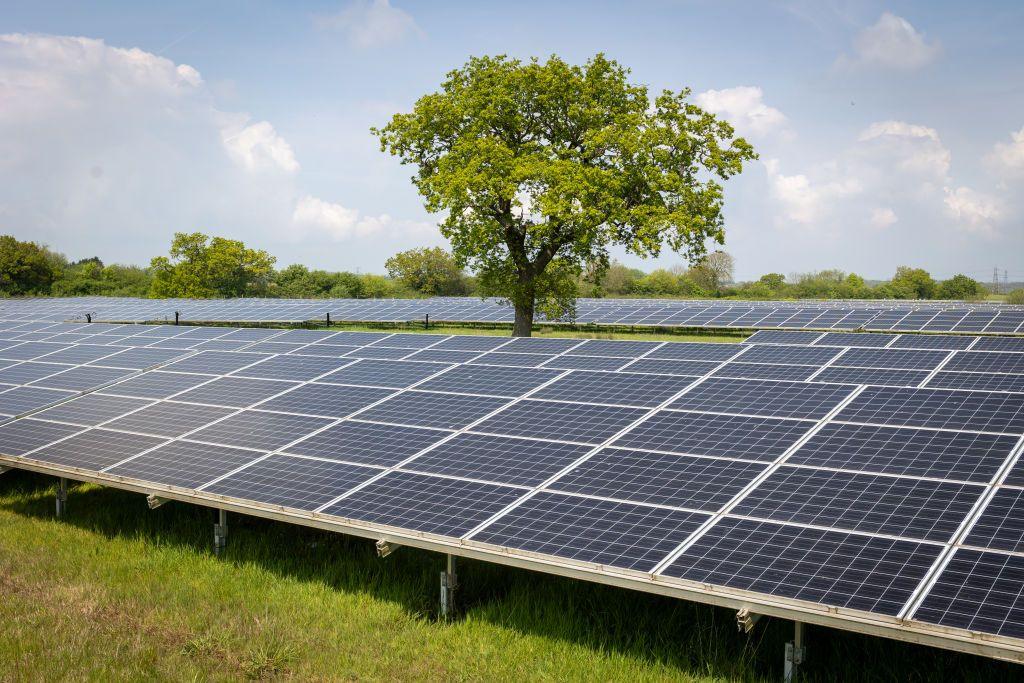Fears over 2,700-acre 'mega-solar' scheme
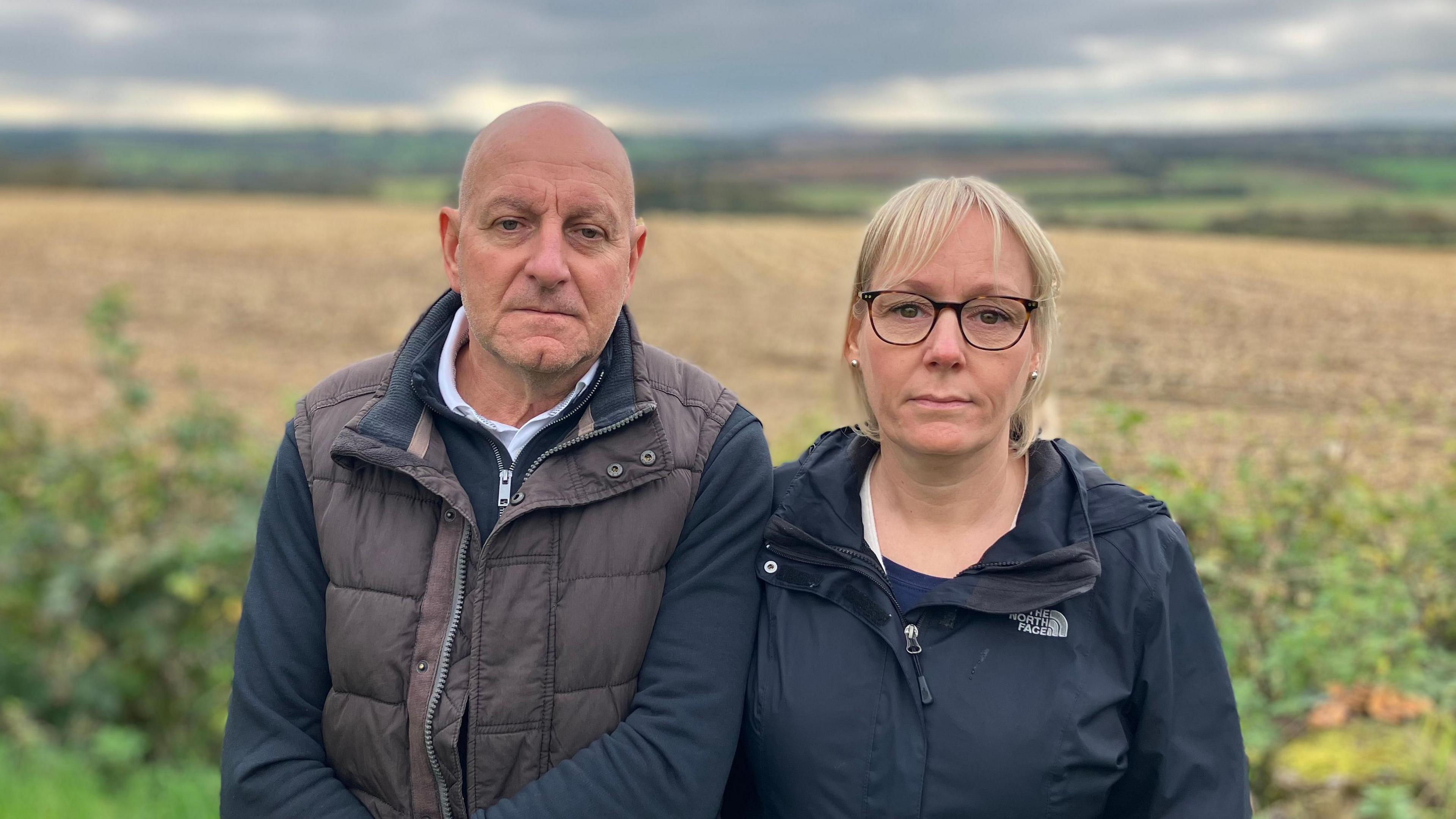
Stephen and Sharon Boulton, who live close to the proposed solar farm, say other options should be explored first
- Published
"It's going to be huge, absolutely vast," says Stephen Boulton of the solar farm that could be built on fields near his home in rural Devon.
"Moving here was my retirement dream, to be able to look out over a view like this," added Mr Boulton, who is now spearheading the campaign against what could be one of the UK's largest solar schemes.
The proposed Beacon Solar project, near Holsworthy - of up to 1,100 hectares or about 2700 acres - would "contribute to cutting emissions" and "reducing reliance on fossil fuels", said developer Galileo Empower, which added it was "fully committed" to working closely with all local stakeholders.
The government said: "Solar is central to our mission to become a clean energy superpower, delivering energy security for Britain so we can get bills down for good."
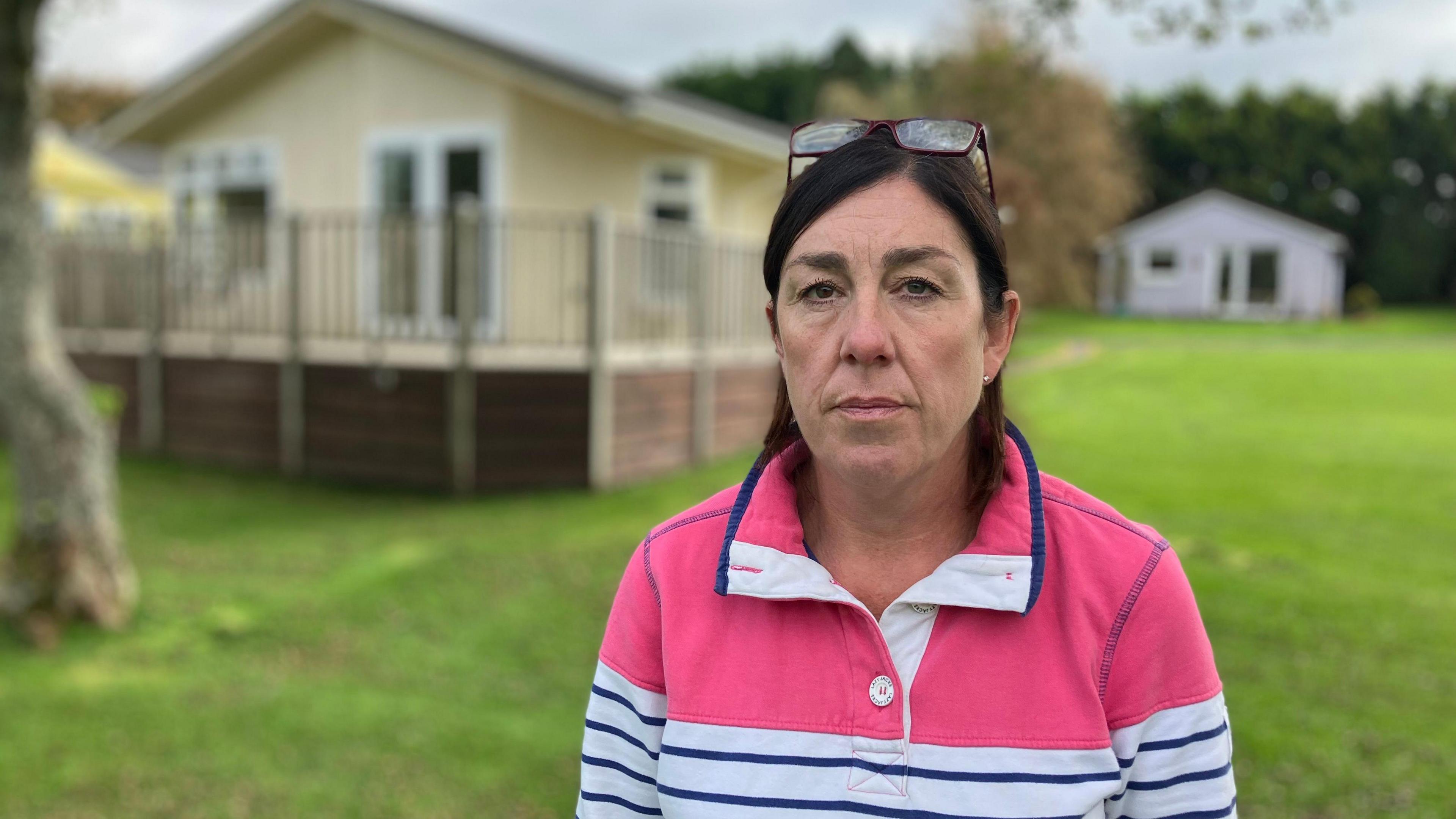
Holiday park operator Lisa Keogh said she was worried the scheme could put people off visiting the area
Sharon Boulton is one of the four residents the BBC spoke to in the hamlet of Woodacott who said they were worried about the size of the proposed scheme, as well as its impact on wildlife and the potential loss of farmland.
Mrs Boulton said: "There are other areas that we can explore first.
"We should be exhausting every other option before this: solar on houses, rooftops, car parks, hospitals."
Stephen Boulton added: "There are other ways of achieving our net-zero targets, including offshore wind, which has less of an impact on people's day to day lives".
Lisa Keogh, who runs a small holiday park with several static caravans, said she was worried about possible impact on tourism if it went ahead.
She said: "People come here for the beautiful Devon countryside".
"I'm not against renewable energy, but there has to be a balance... It just feels like it's all too much."
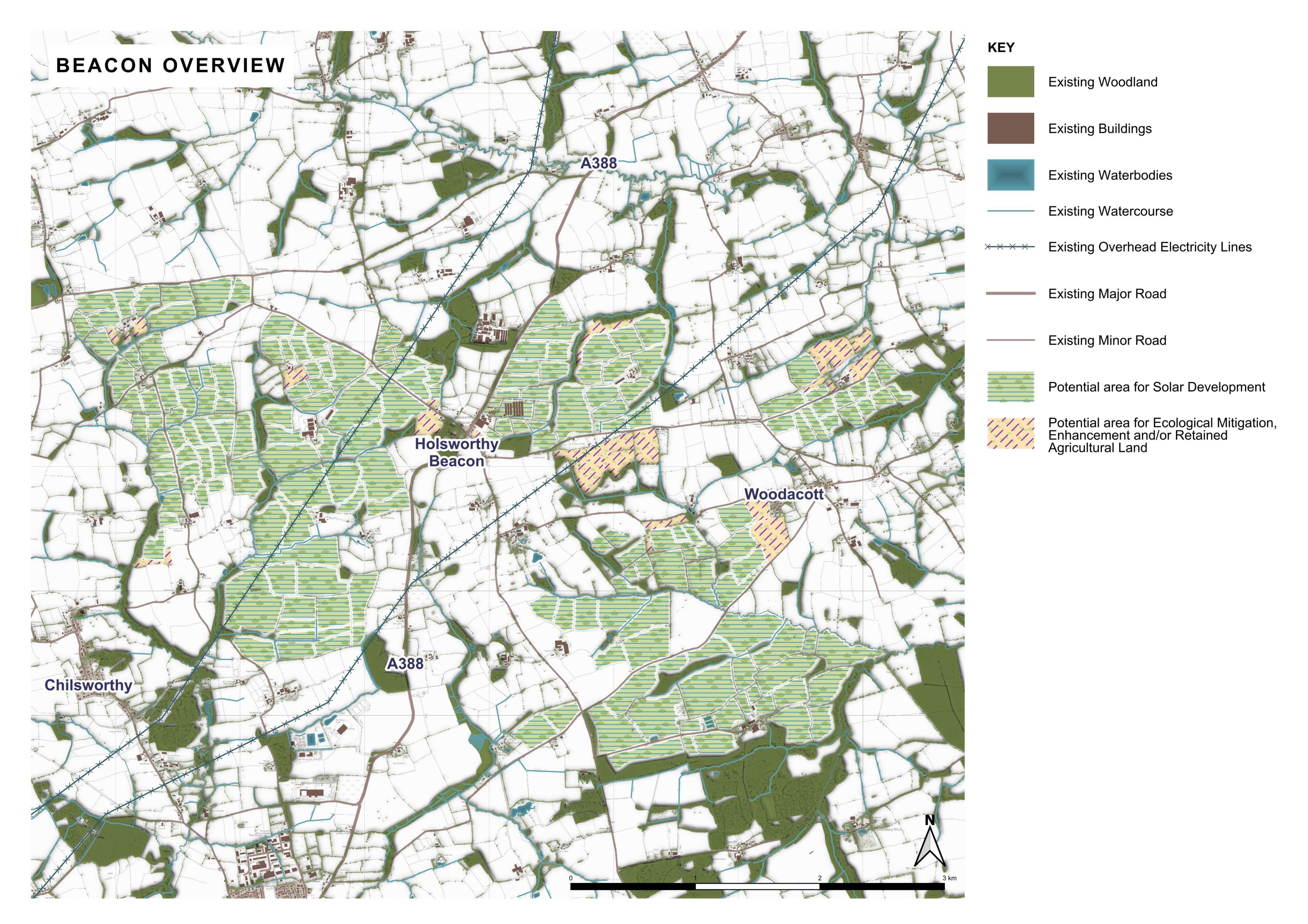
Developer Galileo Empower said "a significant amount of land" would also be set aside for "biodiversity enhancements and supporting infrastructure"
The proposal follows a controversial development at nearby Pyworthy, which also faced opposition.
That scheme, at 164 acres (66 hectares), is about 6% of the overall size of the Beacon Solar proposal.
It also follows plans for other large-scale developments in other parts of the country.
'Reduce energy costs'
"Solar is one of the key technologies we need to decarbonise and tackle climate change," said Johnny Gowdy, director at Regen, an Exeter-based not-for-profit organisation supporting the transition to a net zero energy future.
He said: "Since the energy crisis, when we saw the price of gas shoot up, solar has become a really important part of our mission to reduce energy costs and to provide greater energy security."
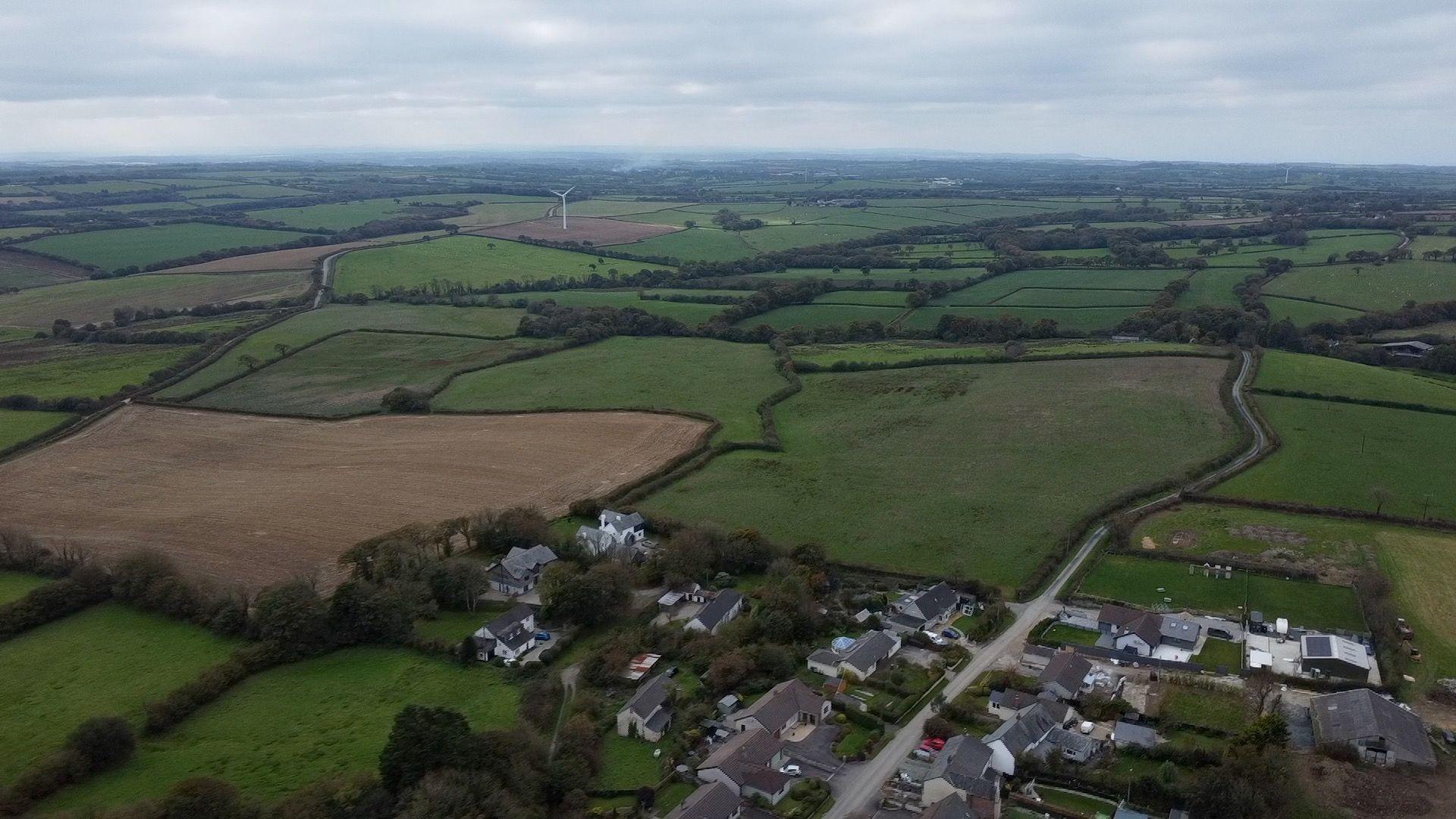
Land around Holsworthy Beacon has been included in the proposed solar farm
Because of its size, the scheme is classed as a Nationally Significant Infrastructure Project and whether it goes ahead will be decided by the government rather than the local authority.
Galileo Empower said it could not confirm the output of the proposal in megawatts (MW) until the scheme had been developed further but it did confirm it would be more than 100MW.
"This is mega-solar," said Stephen Crowther, from the Devon branch of the Campaign to Protect Rural England.
He added: "It's a solar gold rush right now and my worry is that we're ruining long-term areas of not only very beautiful but very productive countryside".
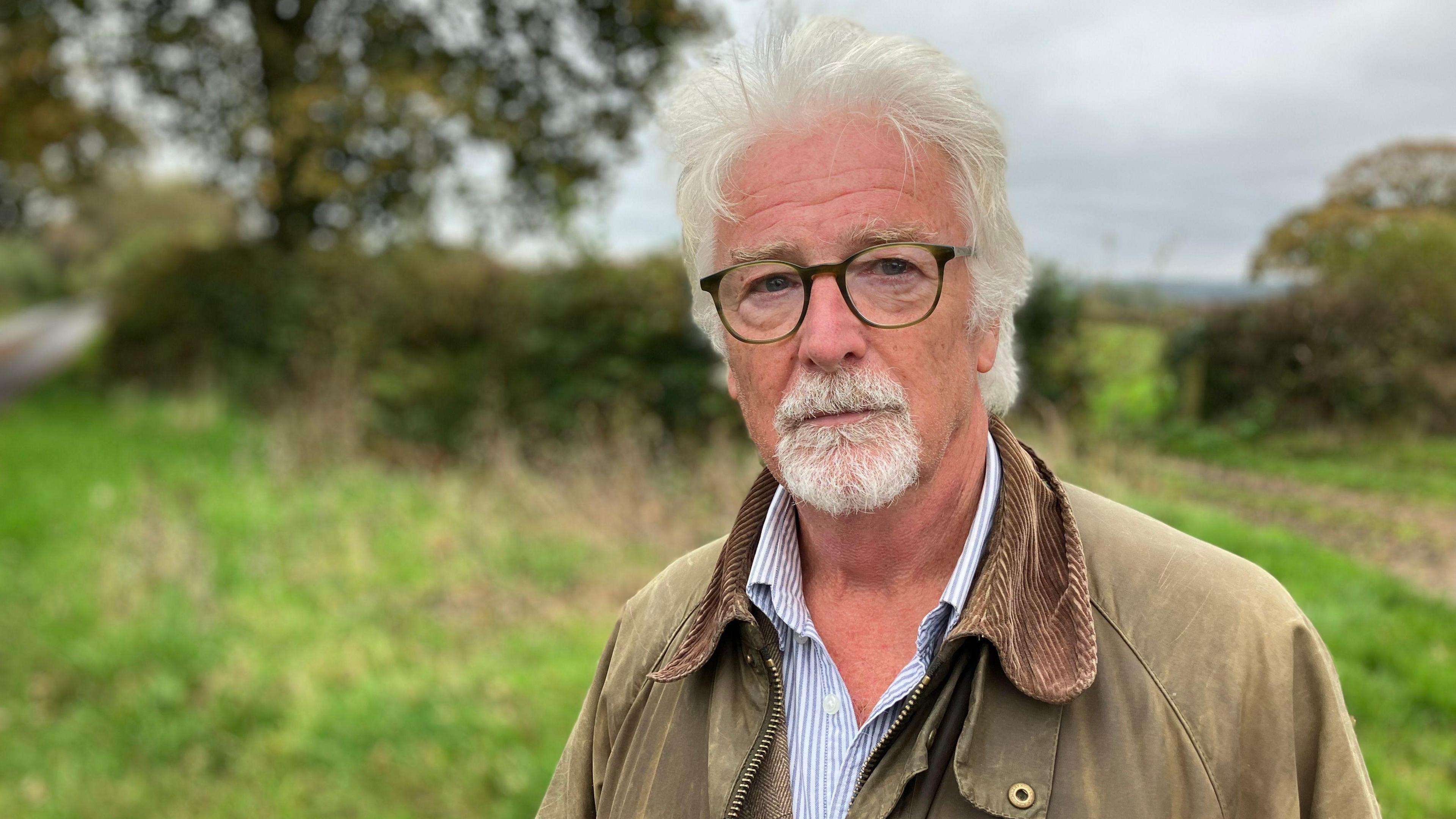
Stephen Crowther from the Devon Campaign to Protect Rural England is worried about the loss of "productive countryside"
Galileo Empower said: "Climate change is accepted as being one of the greatest threats to society in general.
"By combining renewable energy generation with robust habitat management, and species protection, projects like Beacon Solar are part of the solution – tackling climate change while protecting and enhancing local ecosystems.
"We are fully committed to continue working closely with all local stakeholders during this early development stage and beyond."
A Department for Energy Security and Net Zero spokesperson said: "Solar is central to our mission to become a clean energy superpower, delivering energy security for Britain so we can get bills down for good.
"As of September last year, solar farms covered around 0.1% of the total land area of the UK, and complements our work championing British farming and protecting the environment."
Galileo Empower added there would "be clear opportunities for the community to view the plans and provide feedback in 2026 as part of our consultation, before we plan to submit the application in 2027".
Follow BBC Devon on X, external, Facebook, external and Instagram, external. Send your story ideas to spotlight@bbc.co.uk, external.
- Published24 January
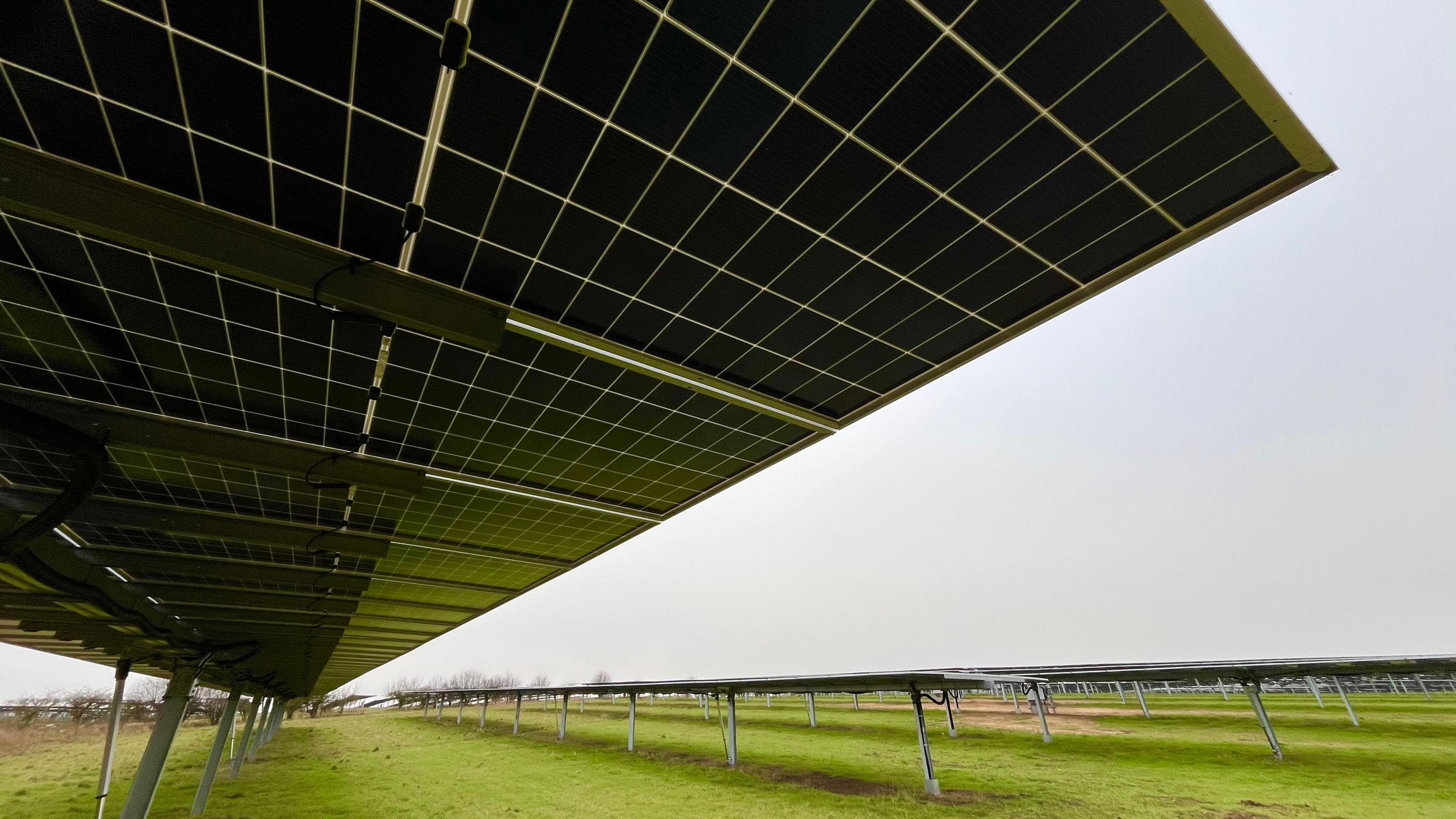
- Published5 November
